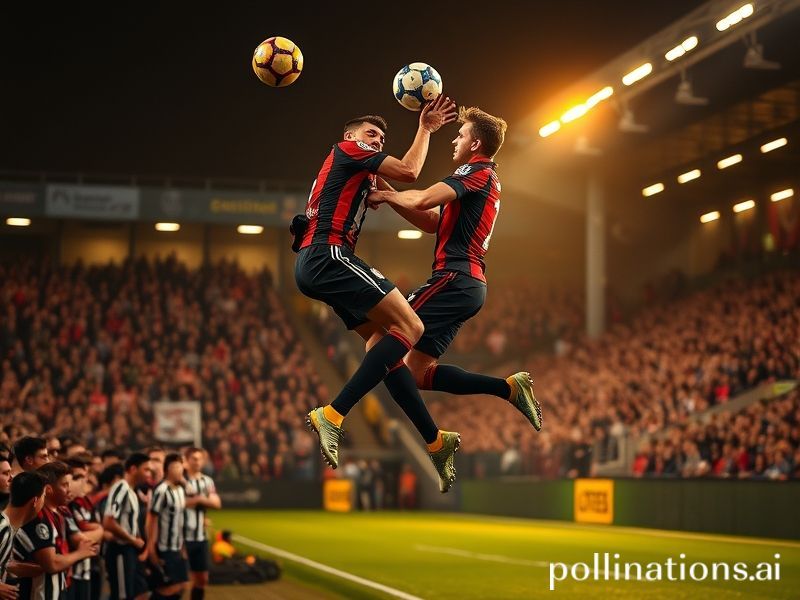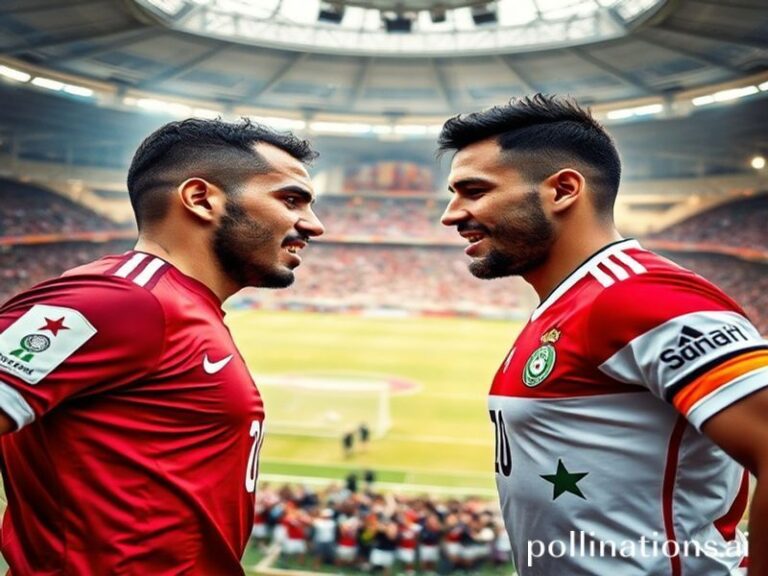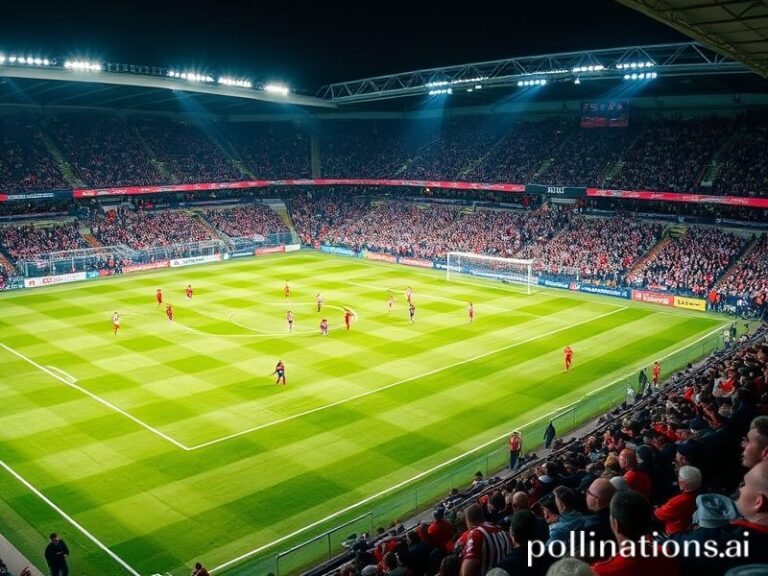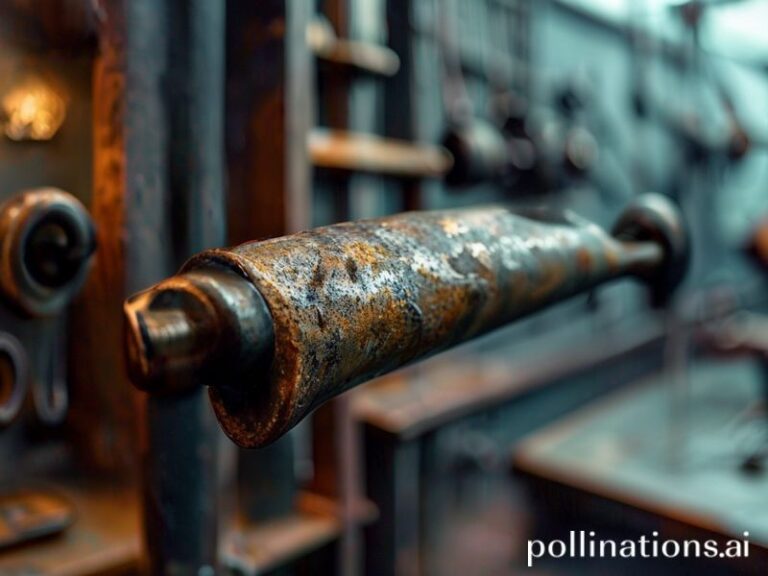From League Two to Geopolitical Chess: The Global Absurdity Timeline of Bournemouth vs Newcastle
The Bournemouth–Newcastle Rivalry, or How a Seaside Town and a Former Mining Hub Accidentally Became Emblems of Late-Stage Capitalism
By Santiago “Sam” Delgado, International Correspondent-at-Large, Dave’s Locker
It began, as all modern catastrophes do, on a spreadsheet. In 2009, AFC Bournemouth—then languishing in League Two, a division so obscure that even its own highlights package required subtitles—recorded a cumulative debt roughly equal to the GDP of Tuvalu. Newcastle United, meanwhile, were busy being relegated from the Premier League for the first (but certainly not the last) time, prompting the city’s nightlife to invent the concept of “pre-emptive mourning.” The world was reeling from the financial crisis, Greece was on life support, and two English football clubs became unwitting case studies in how global capital flows like cheap merlot: sweet at first, catastrophic by morning.
2015: The Great Ascent
Bournemouth, propelled by Russian petrodollars and a manager who looked like he still did his own laundry, clawed into the Premier League. Newcastle, freshly re-promoted, greeted them with the enthusiasm of hostages welcoming new cellmates. Their first top-flight meeting, a 1-0 win for the Cherries, was celebrated in Dorset pubs with artisanal cider and existential dread. In Lagos, a betting syndicate reportedly paid for a village’s water tower with the proceeds. Somewhere in Davos, a PowerPoint slide titled “Emerging Market: English Football” received a polite golf clap.
2017: The Rafa Rage & The Eddie Philosophy
Enter Rafa Benítez, a man whose facial expressions range from “mildly inconvenienced” to “thermonuclear.” Newcastle spent the season yo-yoing between tenth place and relegation like a drunk tourist on a ferry. Bournemouth, meanwhile, embraced “the Eddie Howe School of Fiscal Mysticism,” wherein you spend £40 million on defenders who still can’t head the ball. The 2-2 draw at St. James’ Park that year was later cited by the IMF as evidence that quantifiable risk models are futile when human beings are involved.
2020: Pandemic Special
COVID-19 arrived, and with it the eerie spectacle of football played behind closed doors—essentially turning the Premier League into an expensive Twitch stream. Bournemouth’s relegation that July was confirmed by a VAR decision so microscopic it could have located a Swiss bank account. Newcastle fans, watching from bedrooms in Gateshead to garages in Guangzhou, toasted the moment with supermarket lager and the quiet knowledge that Mike Ashley still owned their souls. Global markets, meanwhile, shrugged: if airlines could be bailed out, why not a club whose mascot is literally a cherry?
2021: The Saudi Takeover
In October, Newcastle became a geopolitical metaphor. The Saudi Public Investment Fund—net worth: “don’t ask”—bought the club, prompting Amnesty International to issue a statement so stern it might have been ghost-written by a disappointed grandmother. Bournemouth, still in the Championship, looked on like the kid whose richer cousin just got a Bugatti for passing his GCSEs. The first post-takeover meeting in 2022 ended 1-0 to Newcastle, a result celebrated in Riyadh with gold-leaf karak tea and, presumably, a discreet high-five over global energy prices.
2023: The Return Fixture, Now With Extra Irony
Back in the Premier League, Bournemouth opened the season by thrashing Aston Villa 2-0, prompting pundits to hail them as “plucky disruptors”—Silicon Valley speak for “we have no idea how this happened.” Newcastle, meanwhile, qualified for the Champions League, meaning Geordies now had to Google what time it is in Milan. Their 4-1 demolition of the Cherries in November was less a football match than a TED Talk titled “Soft Power Through Centre-Backs.”
2024: The Existential Derby
The most recent clash, a tense 2-2 draw in March, coincided with the collapse of another mid-sized American bank. Bookmakers offered odds on which would fall first: the global economy or Bournemouth’s back four. In Nairobi, a taxi driver streamed the game on his phone between rides, remarking, “At least when these clubs lose, they still get paid.” Somewhere in the Arctic, a glacier shed a tear—possibly for the planet, possibly for VAR.
Conclusion
What began as a provincial English fixture has mutated into a rolling seminar on the absurdities of the 21st century: petro-states laundering reputations, seaside towns gambling on centre-forwards like crypto bros on Dogecoin, and fans worldwide clinging to 22 millionaires kicking a ball as if it were the last unifying ritual we have left. Bournemouth vs. Newcastle: not just a match, but a quarterly report on the human condition—losses, profits, and extra time forever.







